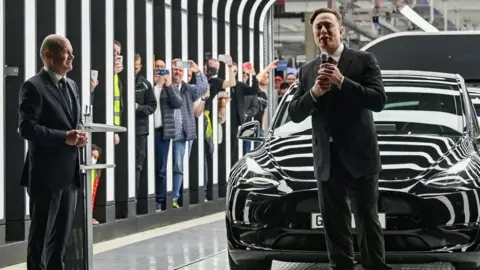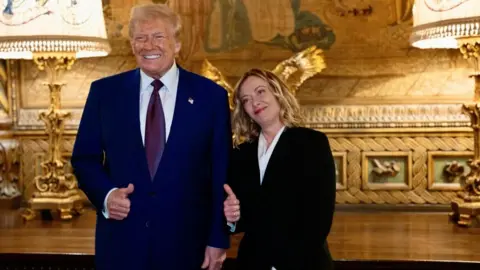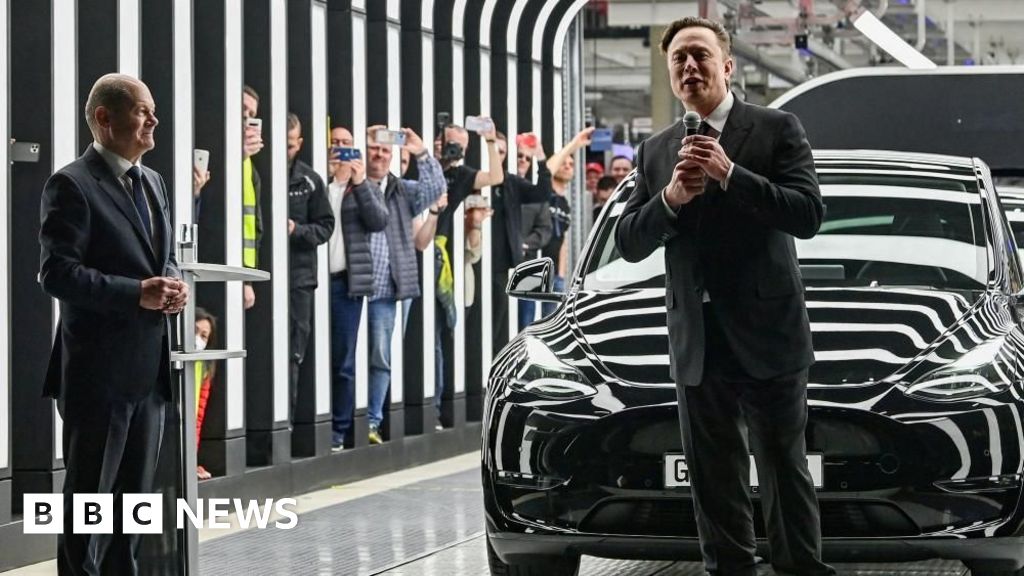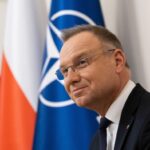Few European leaders have felt the sting of Elon Musk’s social media outbursts as much as German Chancellor Olaf Scholz.
The billionaire owner of X’s technology called him an “incompetent fool” and urged him to resign. On Thursday, Musk will use his platform to host Alice Weidel, head of Germany’s far-right, anti-immigrant AfD party, for a lengthy conversation.
To many German politicians, this looks like political interference, with the AfD coming second in polls ahead of the Feb. 23 federal election.
“You have to stay cool,” says Scholz. “Don’t feed the troll.”
Although some European leaders, notably Italy’s Giorgia Meloni, have found favor with Musk, others are finding it hard to ignore him as he ventures into their domestic politics in anticipation of a new leadership role. advisor to the new American president Donald Trump.
In the space of 24 hours, four European governments opposed Elon Musk’s publications.
Frenchman Emmanuel Macron was among the first to express his disbelief on Monday.
“Ten years ago, who would have believed it if we were told that the owner of one of the largest social networks in the world would support a new international reactionary movement and directly intervene in elections, including in Germany?” he said.
 Reuters
ReutersNorwegian Prime Minister Jonas Gahr Store also spoke out, saying he found it “worrying that a man with considerable access to social media and significant economic resources would be so directly involved in the internal affairs of other countries “.
Spanish government spokesperson Pilar Alegría said digital platforms such as X should act with “absolute neutrality and above all without any form of interference”.
Musk highlighted crime statistics in Norway and Spain, and blamed the deadly Christmas market attack in Germany on “massive and uncontrolled immigration.”
In recent days, Musk has written numerous articles attacking British Prime Minister Keir Starmer and his administration over grooming gangs and child sexual exploitation.
“Those who spread lies and disinformation as far and wide as possible are not interested in the victims, they are interested in themselves,” the British prime minister said, without mentioning Musk personally.
Two notable exceptions in Europe are Italy and Hungary.
Italian Prime Minister Giorgia Meloni has close ties to Elon Musk and calls him a “genius” and an “extraordinary innovator.”
 Reuters
ReutersAnd Hungary’s Viktor Orban, who met Musk during a visit to Trump at Mar-a-Lago last month, shares Musk’s dislike of Hungarian-born liberal philanthropist George Soros.
But it is the tech billionaire’s intervention in German politics that is most controversial, due to the looming elections.
He has repeatedly spoken out in favor of the AfD in recent weeks and wrote a highly controversial article in Welt am Sonntag in which he calls the AfD “the last spark of hope” for Germany.
Musk then justified his intervention by the financial investment of his company Tesla in Germany. He said describing the AfD as right-wing extremist was “clearly wrong” because Alice Weidel had a same-sex partner from Sri Lanka.
German security services have labeled the AfD a right-wing extremist or suspected extremist and courts have ruled that it pursues goals contrary to democracy.
While Olaf Scholz sought to remain calm, the Greens’ candidate for chancellor, Robert Habeck, was more direct: “Hands off our democracy, Mr. Musk.”
Liberal FDP leader Christian Lindner suggested that Musk’s goal could be to weaken Germany in the interests of the United States, “by recommending voting for a party that would harm us economically and isolate us politically.” “.
Former head of the European Commission’s digital agenda, Thierry Breton, warned Alice Weidel, the AfD candidate for chancellor, that Thursday’s live chat with Musk would give her “a significant and valuable advantage over your competitors.”
The European Commission said nothing in EU rules on digital services prohibits live streaming or anyone expressing personal opinions.
However, a spokesperson warned that platform owners should not give “preferential treatment”. Musk’s X is already under investigation and the EU says the live stream will fall under that investigation.
Although Musk has been outspoken on German politics, he has also expanded his business interests in Italy.
Giorgia Meloni had just taken a whirlwind trip to dine with Donald Trump at Mar-a-Lago when reports emerged that Italy was in talks with Musk’s SpaceX to sign a $1.6 billion deal (1.3 billion), under which Starlink satellites would provide encrypted internet and telecommunications services for the Italian government.
The deal does not yet appear to have been concluded and Rome quickly denied signing any contracts.
Musk said Monday he was “ready to supply Italy [with] the most secure and advanced connectivity” – without confirming that a deal has been reached.
But the suggestion that Starlink could be tasked with safeguarding Italian government communications was enough to worry some opposition politicians in Rome.
“Rendering such a delicate service to Musk while he sponsors the European far right, spreads fake news and interferes in the internal politics of European countries cannot be an option,” said centrist leader Carlo Calenda.











